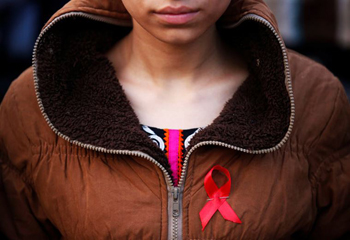Miami, Dec 8: Life expectancy in the United States dropped last year for the first time since the peak of the HIV/AIDS crisis more than 20 years ago, as deaths rose from nearly every major cause, federal data showed today.
 The total US population's life expectancy in 2015 was 78.8 years, a decrease of 0.1 year from 2014, said the report by the National Center for Health Statistics.
The total US population's life expectancy in 2015 was 78.8 years, a decrease of 0.1 year from 2014, said the report by the National Center for Health Statistics.
Deaths from eight of the top 10 causes mounted, including spikes in accidental deaths among children and deaths from Alzheimer's disease in the elderly.
The report did not delve into the reasons for the across-the-board decline in life expectancy from birth, but experts pointed to economic struggles, drug addiction and the increasing burden of dementia on an ageing population as potential factors.
Across the nation, 86,212 more people died in 2015 than a year earlier.
"This is unusual," said lead author Jiaquan Xu, an epidemiologist at the NCHS, which is part of the US Centers for Disease Control and Prevention."2015 is kind of different from every year," Xu told AFP.
It "looks like much more death than we have seen in the last few years." The last time life expectancies at birth dropped for the total US population was in 1993, a year when the deaths from AIDS reached a peak in the United States, compounded by a bad flu year that resulted in more flu and pneumonia deaths, he said.
Homicide and accidental death rates also went up that year.For 2015, the data also showed a 1.2 per cent increase in the death rate for the total population, and this "rose significantly for the first time since 1999," noted the report.
For US men, life expectancy dropped 0.2 years from 76.5 years in 2014 to 76.3 years in 2015.
For US women, life expectancy decreased 0.1 year to 81.2 years in 2015.The overall downward trend in America stands in sharp contrast to the situation worldwide, where global life expectancy has increased five years from 2000 to 2015, according to the World Health Organization.
Women in Japan currently have the longest average lifespan at 86.8 years, while men in Switzerland can anticipate 81.3 years.Sierra Leone has the lowest life expectancy, with women at 50.8 years and men at 49.3.
In the United States, life expectancy has stagnated nationwide in recent years. Federal data from 2014 showed a slight downturn in life expectancy for white people, which experts said could be due to rising drug abuse particularly the prescription painkiller epidemic and poverty. But this year, there was no single cause.





Comments
Add new comment